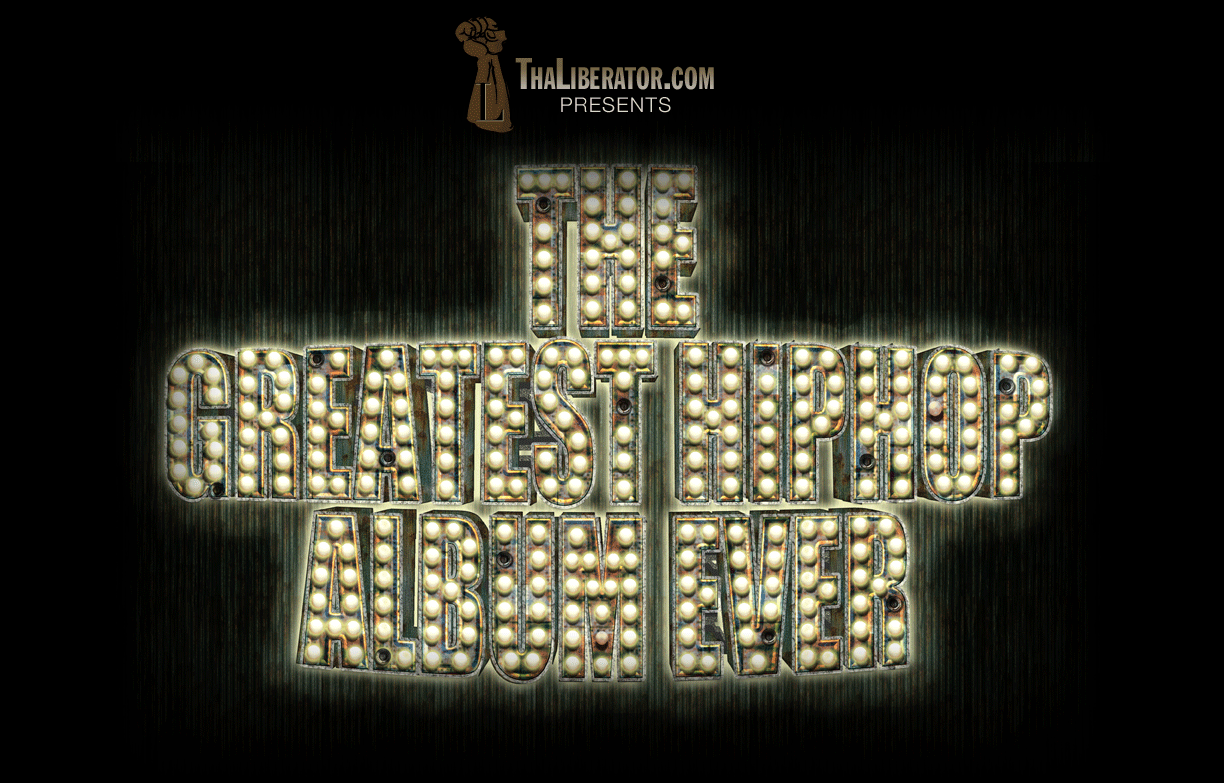"You wanna know what my problem is, if you're curious?
I take this HipHop shit too serious!"
— KRS-ONE "Stop Frontin'"
Who is The HipHop Taliban?
The first HipHop album I owned and wore out was Rasing Hell, back in '86. My older cousin took me to my first HipHop show in 1989. At some point between those three years, polls closed on my musical tastes and HipHop has held the number one spot ever since.
I skipped lunch most days in high school to save up enough money to buy some of the more than 400 rap cassettes I still have, including the analog trifecta — the purple Cuban Linx tape, the red Dare Iz a Darkside tape, and the blue '93 'til Infinity tape.
A graduate of Syracuse University (Oh My God! Danger!) with degrees in journalism and African American Studies, I was also host and DJ of Central New York's rawest HipHop show ... Da Show! (WERW Represent).
I wrote features and reviews for Rap Pages, Yahoo, Launch and another now defunct HipHop publication I'm not going to give any belated shine to, considering I had to sue the publisher who "forgot" to pay me after publishing my articles — I eventually won the case and got my money, but to Hell with him. I edited the (then) largest Black-owned newspaper on the West Coast and briefly published LA's first 100-percent bilingual newspaper.
Early in the millennium I decided it was time to stop writing for music publications as it became clear they were more interested in cultivating cozy relationships with deep-pocketed advertisers than journalism.
In 2000, during the early days of Napster (the "illegal" version), instead of allowing me to do a real, substantive piece with the Outsidaz regarding their feelings on their new album being put online by their record company without their knowledge, I was basically ordered to just go ask them to tell me how dope they thought their album really was.
Similarly, I was hired to conduct an interview with Bad Boy's bad Biggie knockoff, Shyne, shortly before he was to go on trial for bustin' caps in a night club — an incident that got J-lo briefly thrown in the clink. Going into that interview I was specifically told not to bring up the pending trial and the shooting incident because "Arista buys a lot of ads, and we don’t need to rock that boat."
And with that as the new norm, I hung up my mighty HipHop journalism pen.
To be clear, I'm not some bitter old head waxing nostalgic about the Golden Era (even though it was the s--t) as if every rhyme dropped on the two-inch tape was an instant classic just by virtue of the fact that it was released in the late '80s/early '90s — trust me, they weren't — Money B, you still owe me $10 for that awful Raw Fusion album!
Do I think, like so many of my peers, that there is no more good rap music or "HipHop is dead?" Absolutely not. With the internet cutting out the record company as middleman, I have more access to quality music than ever bfore. There is just as much high-grade music now as then, although it's not typically as groundbreaking because many of HipHop's musical firsts have already occurred.
But things are different.
The only reason we were able to have Poor Righteous Teachers and De La Soul existing in the same space with the Geto Boys and King Tee and Heavy D and MC Hammer, is because the music hadn’t yet become a financially viable career choice. It was still art. And not art as it exists now, where being creative or outside of the norm relegates you to a permanent underground subclass, but art in the sense that there was no huge financial incentive to sound like the next MC. Instead, you sounded like you because you had something personal to express, and you knew the community would back you up because no biters were allowed.
Times change and times have indeed changed.
But if there’s anything I’m nostalgic for, it’s for a time when rap music mattered. Mattered in the sense that it actually informed my political consciousness and cultural awareness, not just my fashion sense.
In 1991 HipHop was still, largely, counterculture. In 2011, it is the culture ... well pop culture anyway.
And plain and simply, rap music no longer matters.
It no longer requires serious attention to be paid to it because the mainstream of HipHop music is not a serious music conducted by serious people. It is a parody of itself that exists to generate revenue and allow MCs to step off into movies and corporate gigs, become sports drink pitchmen and reality TV stars.
There is no going back, and perhaps we shouldn’t. There’s no need. What was created then will always exist and it will influence new classics.
But just as we never looked at Mike Tyson the same way after Buster Douglas had him crawling around on all fours in Tokyo, mouthpiece dangling from his gold-toothed grill, we can’t look at HipHop and pretend it has the same social influence and power it did decades ago.
Rap music poses no threat, no fear, no concern that the right set of lyrics at the right moment in time could spark a social or cultural revolution amongst its listeners.
No, no, rap music is the the de-fanged snake, the neutered bull, the de-clawed tiger, the married man. It matters only in so much as it has been integrated into society, has a place and a function that we can opt to pay attention to if we so choose, but if we don’t we won’t be missing much.
Death Certificate occurred at a time when rap music mattered, and that album mattered more than most.
Sometimes timing is everything.
peace,
HipHop Taliban



